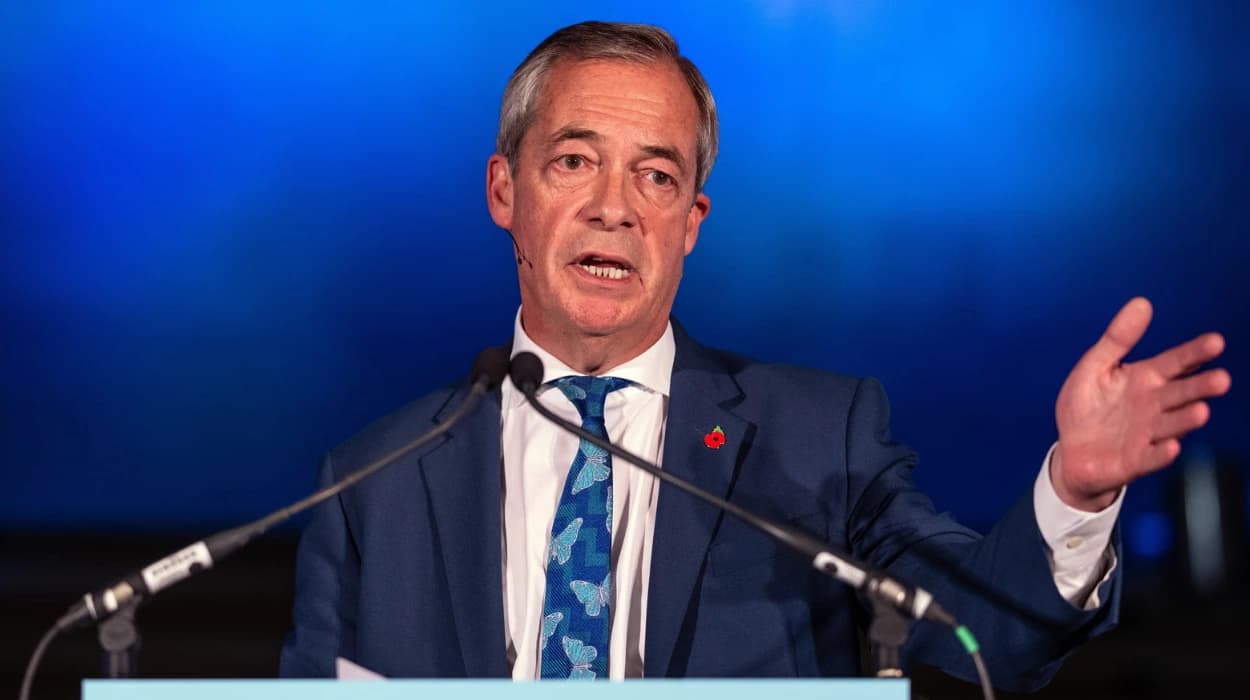Nigel Farage retracts Reform UK’s £90bn tax cut plan,
blaming Labour and the Tories for “wrecking” public finances and urging
spending control first.
The Reform leader denied that he had been compelled to violate pledges made in his manifesto to acquire economic legitimacy, arguing that the plan had always been merely a "aspiration."
In addition to reversing the party's 2024 promise to increase tax-free thresholds to £20,000, he declined to ensure that the pensions triple lock, which is expected to reach £15.5 billion by 2030, would continue under a Reform administration.
The conflicts at the core of Farage's strategy were exposed in his address in the City of London. He is trying to maintain the electoral advantages of political insurgency while simultaneously enhancing his party's economic legitimacy, which his opponents view as a weakness.
A third of the NHS budget was allocated to tax cuts as part of Reform's manifesto, but experts deemed the ideas, together with £150 billion in cutbacks and £50 billion in spending promises, to be "problematic" and significantly more expensive than stated.
Reform has indicated significant cutbacks to welfare benefits, net zero policy, migrant asylum help, foreign aid, and the Whitehall civil service, but it has not yet laid out specific measures for spending cuts.
In his speech, Farage said:
“I cannot tell you what the state of the economy will be as the next general election approaches. If I’m right, and that election comes in 2027 then the economy will be in an even worse state than any of us in this room could even relate.
So how can anybody project on pensions or thresholds or any of those things between now and then … They were only ever aspirations. I think what you’re seeing today is us being realistic about the state of the economy”.
It has been suggested that reform may reduce the future earnings of millions of police, teachers, and nurses by examining adjustments to public sector pensions. According to Farage, he was concentrating on "exorbitant" management costs that pension funds were paying.
If Reform wins power, he said he would first implement "relatively modest" reductions, such as raising tax thresholds and repealing the agricultural inheritance tax, but he would not immediately implement any significant tax cuts.
Lifting Nick Clegg's remark about "alarm clock Britain," Farage stated that he wanted Reform to be the party of working people. However, he also criticized the government's workers' rights bill, claiming it hurt small firms, and suggested the minimum wage for younger workers was too high.
“There’s an argument the minimum wage is too high for younger workers, particularly given that we’ve lowered the level at which NIC [national insurance contribution] is paid to £5,000 a year. So do one or the other: either lift the cap at which NI is due, or lower the minimum wage for lower [sic] workers.”
Farage emphasized his opposition to the non-dom tax, claiming that it forced many high earners to leave the nation in order to avoid paying taxes here, by claiming that the UK was seeing a wealth drain similar to the brain drain that occurred in the 1970s.
Last week, the party announced significant changes to disability benefits. Farage said that by eliminating Pip payments for people with modest levels of anxiety, Reform may save £9 billion, albeit the exact amount is debatable and its source is unknown.
Farage, who has been held accountable by Labour for the weak economic growth and for being the driving force behind Brexit, claimed that the chances of exiting the EU had been "squandered."
“The opportunity to sensibly deregulate, the opportunity to become competitive globally – all of that has been squandered. The worst thing is that regulations and the way regulators behave with British business is now worse than it was at the time of the Brexit referendum vote.”
Even though Richard Tice, the party's deputy leader, served as its economic spokesperson, Farage refused to specify who his chancellor might be in the government when questioned following the event.
“This is a work in progress. What I’ve tried to do really hard this year is to get away from this idea, this criticism, that somehow it’s a one-man band. It’s not a one-man band. It’s a broadening team,”
he said.
What specific spending cuts Reform UK proposes to balance the books?
Reducing government Extravagant spending by £50 billion per
time, achieved through cutting bureaucracy, slashing gratuitous public sector
programs, and negotiating better procurement deals across all
departments.
Ending the Bank of England’s practice of paying interest on quantitative easing reserves to marketable banks, potentially saving £30- 40 billion annually. Scrapping gratuitous government quangos and commissions, which are seen as expensive and hamstrung, contributing to billions in wasted public finances.
Reassessing major public systems similar as transport structure for implicit cancellations or resumptions. Reforming tradition charges to raise fresh profit. Reducing government consultancy spend and civil service headcount to streamline operations.
